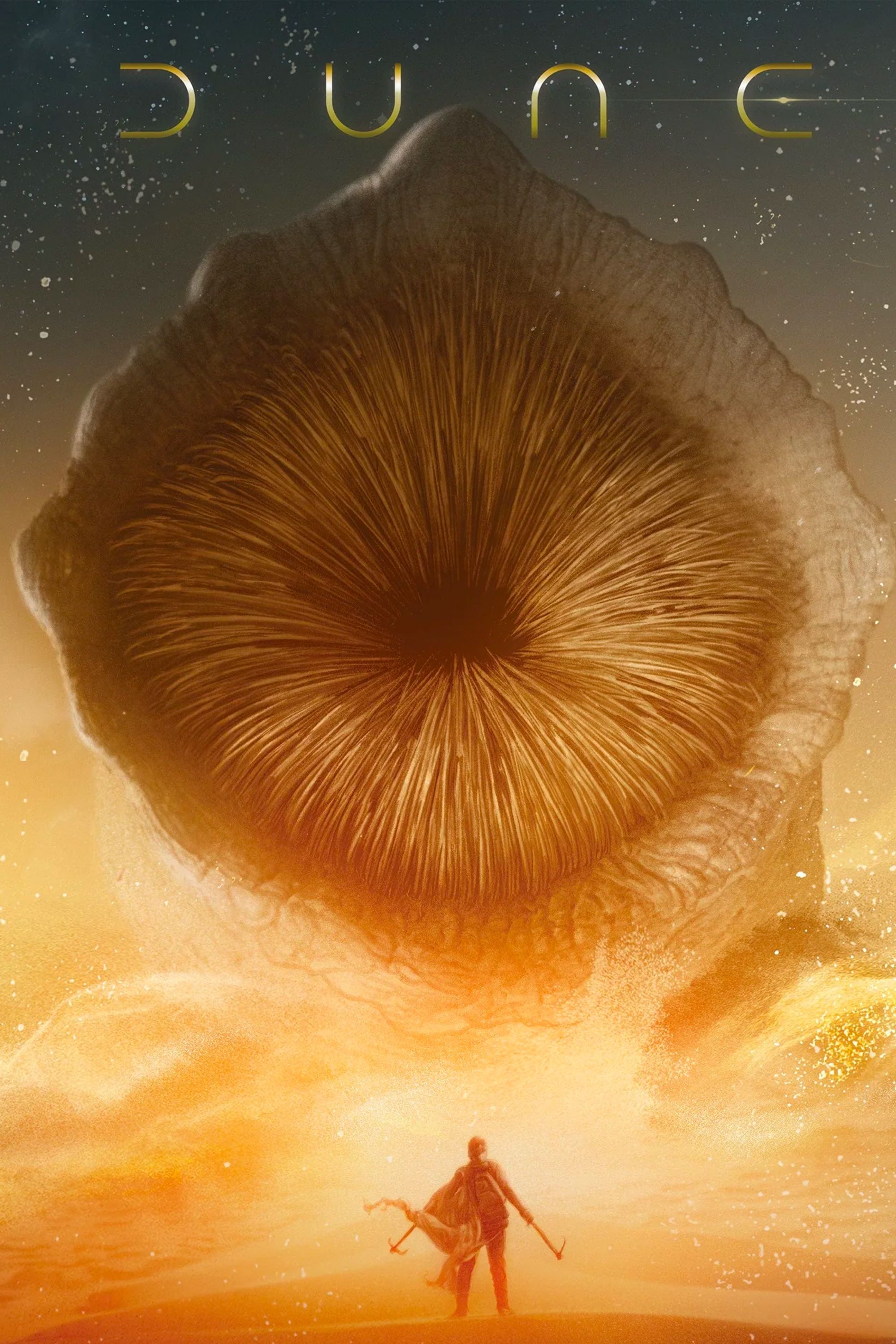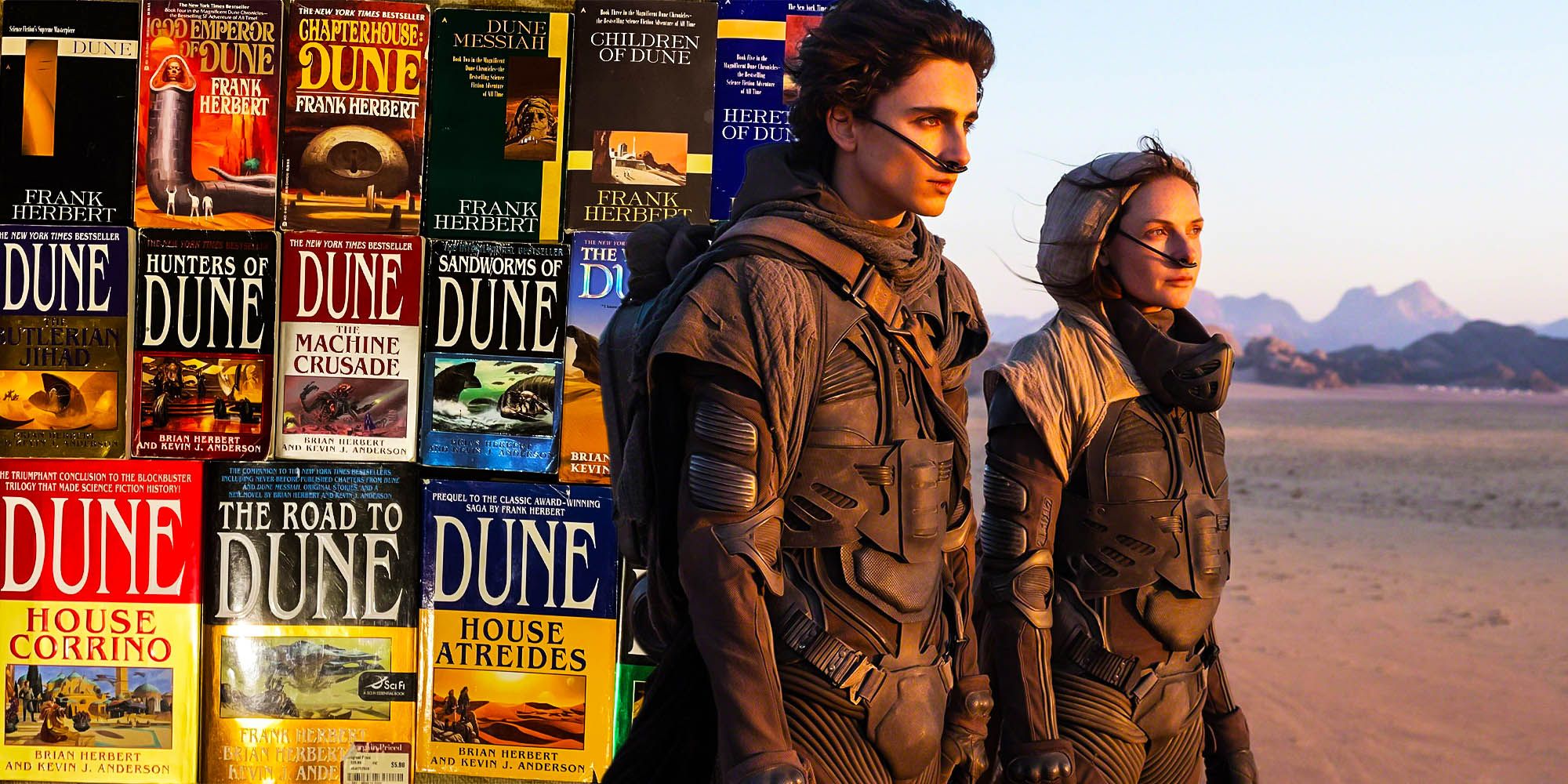Summary
- Denis Villeneuve planned a Dune trilogy with Dune Messiah as the conclusion, providing narrative closure.
- The Dune franchise can remain self-contained and avoid fatigue with a coherent story.
- Villeneuve may step away from the main directorial spotlight but still contribute to future Dune adaptations.
Dune: Part Three, currently slated for a 2026 release window, aligns perfectly with director Denis Villeneuve’s narrative options for a definitive conclusion to his Dune story. When Villeneuve announced he’d adapt Frank Herbert’s beloved novel, Dune, into a feature film, it was met with eager anticipation. Its success helped build anticipation for the 2024 follow-up, Dune: Part II, which received rave reviews at the box office. Accordingly, the buzz around a third film is just as loud. This, however, raises an interesting dilemma over at what point the films’ stories should come to a satisfying conclusion.
The Dune books’ story is spread out across more than 20 novels, despite Herbert only writing the first six, beginning with the eponymous Dune novel in 1965. With such a rich narrative universe to pull from, it’s difficult for any film to fully adapt the franchise’s intricate lore. Despite this, Villeneuve has carved out a very clear vision for the story he plans to tell. He utilized Dune: Part II to lay the groundwork for Dune 3 serving as an adaptation of Dune Messiah. Given Messiah‘s story, the themes already explored in the film series, and Villeneuve’s own approach to the material, adapting Dune Messiah is the perfect conclusion.
Related
10 Most Exciting Things To Expect From Dune 3
Dune 3 is confirmed to be in development. Based on information from the novels, here are the main plot details and cast changes to be excited about.
Villeneuve Finishing With Dune Messiah Is His Best Ending
It Works As A Strong Third Act – Without Getting Overloaded With Expanded Lore
In order to present a coherent and contained story that can avoid garnering the kind of fatigue seen recently in the Marvel Cinematic Universe (MCU), entries in the Dune franchise should remain largely self-contained. Villeneuve has, thus far, carefully chosen the message he wants to tell, and his desire for his Dune films to comprise a trilogy logically implies that his goal has always been to carry out Messiah’s storyline. The plot of his first two movies has indicated this. Villeneuve carefully selected and changed certain components of the original Dune as a way to set up this trilogy.
While
Dune
and
Dune: Part II
can stand alone, both narratively and cinematically, as enjoyable films, a conclusive closing chapter like
Dune 3
can provide narrative closure that illustrates Herbert’s original message.
Dune Messiah tells a cautionary tale that warns against the pitfalls of blindly following charismatic, god-like figures. It’s a timely message that deserves definitive closure. This is what makes Dune 3 so important in the scope of Villeneuve’s story arc. While Dune and Dune: Part II can stand alone, both narratively and cinematically, as enjoyable films, a conclusive chapter like Dune 3 can provide narrative closure that underscores Herbert’s original message. Otherwise, the franchise would feel unfinished, especially given the focus on Paul Atreides’ (Timothée Chalamet) ascension in Dune: Part II into an unwitting messianic figure.
Why Villeneuve Wouldn’t Need To Return For Other Dune Movies
There Are Opportunities For Villeneuve To Help Facilitate Additional Dune Stories With A Smaller Role
The later entries in the Dune novels’ franchise are very different, both in pacing and content, to Frank Herbert’s six original novels. This is because his son, Brian Herbert, collaborated with another sci-fi writer, Kevin J. Andersen, and carried on the story’s legacy a decade after Herbert’s passing. Just as Herbert wasn’t involved in the expanded Dune novels, Villeneuve’s core trilogy can stand alone as its own entity, even if the Dune films continue in his absence. There’s no shortage of stories to tell or directors who’d be willing to tell more stories set in and around Arrakis.
There have been other adaptations, like David Lynch’s movie,
Dune
(1984), and Greg Yaitanes’ miniseries,
Frank Herbert’s Children of Dune.
Perhaps, in a George-Lucas-esque move, Villeneuve may step away from the main directorial spotlight to work more as a facilitator and mentor. As Dune continues to blossom on film and begins to gain traction on TV, Villeneuve’s influence will surely still be felt. Villeneuve was, initially, picked to direct the pilot for an HBO-produced spin-off series, Dune: Prophecy, but he is no longer involved in that project. However, his willingness to provide his expertise and passion is clear; Villeneuve is still exploring other ways in which he can expand upon his planned trilogy of films.
All good stories need conclusions, and Villeneuve and Dune: Part Three seem perfectly poised with the third and final entry based on Dune Messiah. The inherent lessons told through Herbert’s novels are ones still relevant today, and an auteur like Villeneuve knows that a strong, thoughtful conclusion is important to tell a literal prophetic tale that can hold up in the long run. Even if he is stepping away from directing these stories as the Dune franchise soldiers on, his knowledge of the lore, and the groundwork laid out in his trilogy, will guide any and all future Dune adaptations.


